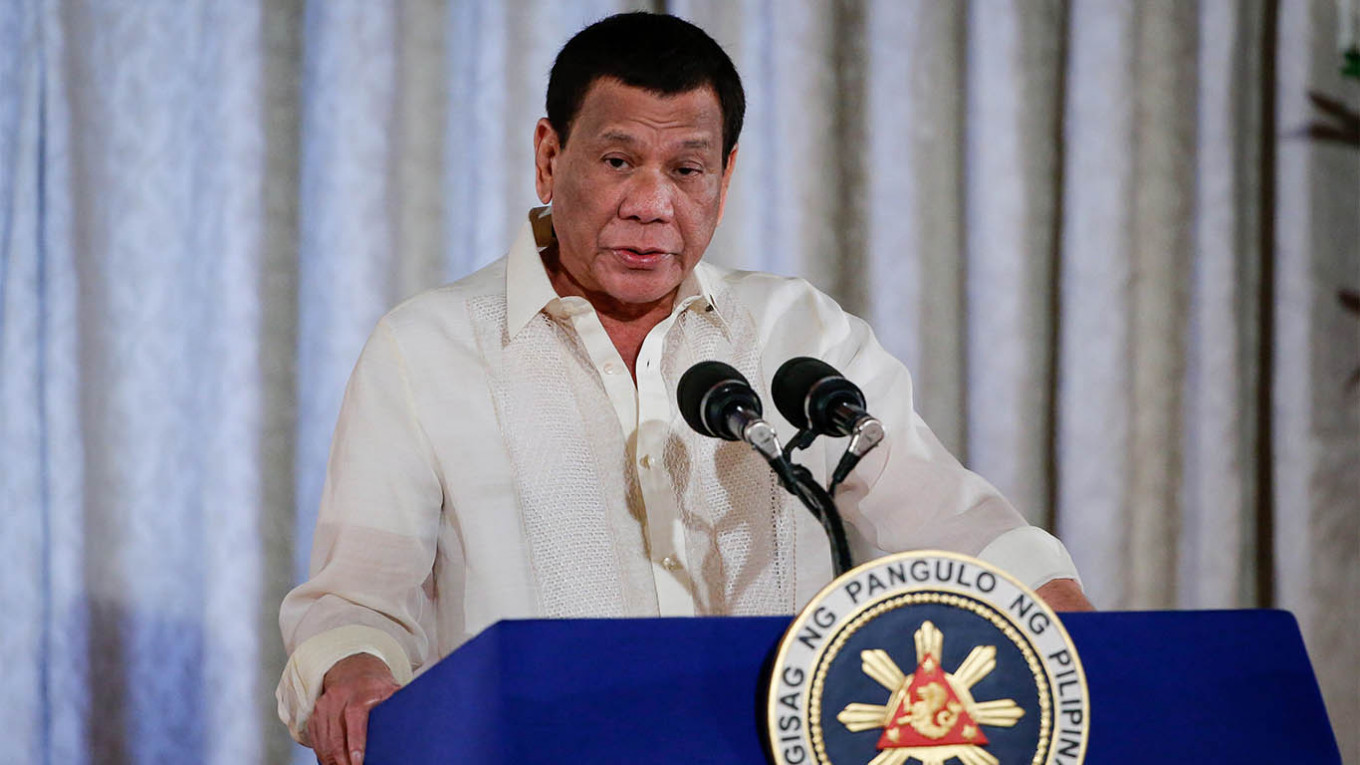The Philippines will begin large-scale human testing of Russia's coronavirus vaccine in October, but President Rodrigo Duterte will not receive the inoculation until regulators guarantee its safety, his spokesman said Thursday.
Duterte had offered himself up as a guinea pig for the very first jab, expressing "huge trust" in the vaccine, despite growing skepticism about its effectiveness.
But his spokesman Harry Roque said the president was scheduled to receive the vaccine no earlier than May 1 — weeks after the Russian-funded Phase 3 clinical trial in the archipelago is due to end in March.
The country's Food and Drug Administration is expected to approve the vaccine — developed by the Gamaleya research institute and the Russian Defense Ministry — in April.
"May 1 is when the PSG (presidential security group) may allow him, once all requisite tests have been finished," Roque told reporters.
Moscow says it has developed the world's first vaccine offering "sustainable immunity" against the coronavirus and is in the final stage of tests involving 2,000 people.
Roque said Philippine experts will review next month the results of Russia's Phase 1 and 2 clinical trials before the Southeast Asian country starts its Phase 3 testing.
"We will do it simultaneously with Russia," Roque said.
Philippine officials from the science and technology department met with Gamaleya on Wednesday to discuss the protocols for the trial of the vaccine, which is dubbed "Sputnik V" after the pioneering Soviet satellite of the 1950s.
The Philippines, which is struggling to contain the virus, has accepted Russia's offer to participate in production of the vaccine.
Anna Lisa Ong-Lim, an infectious disease professor at the University of the Philippines College of Medicine, said the government's timeline to have a vaccine available by May was "very optimistic."
The country is also set to start on Aug. 17 clinical trials for the Japanese antiviral drug Avigan to treat coronavirus patients.
The Philippines has logged the highest number of confirmed infections in Southeast Asia with more than 147,500 cases and over 2,400 deaths.
A Message from The Moscow Times:
Dear readers,
We are facing unprecedented challenges. Russia's Prosecutor General's Office has designated The Moscow Times as an "undesirable" organization, criminalizing our work and putting our staff at risk of prosecution. This follows our earlier unjust labeling as a "foreign agent."
These actions are direct attempts to silence independent journalism in Russia. The authorities claim our work "discredits the decisions of the Russian leadership." We see things differently: we strive to provide accurate, unbiased reporting on Russia.
We, the journalists of The Moscow Times, refuse to be silenced. But to continue our work, we need your help.
Your support, no matter how small, makes a world of difference. If you can, please support us monthly starting from just $2. It's quick to set up, and every contribution makes a significant impact.
By supporting The Moscow Times, you're defending open, independent journalism in the face of repression. Thank you for standing with us.
Remind me later.






